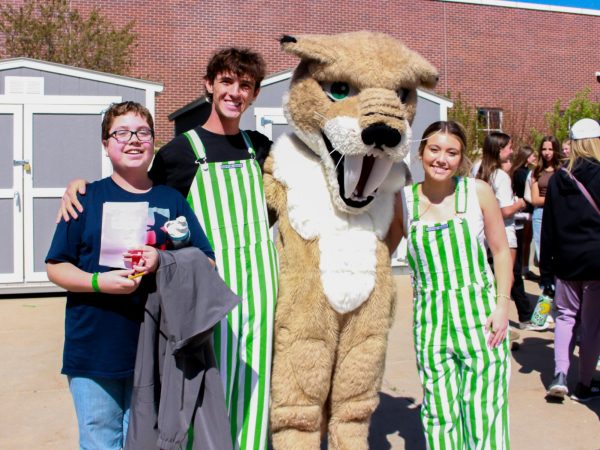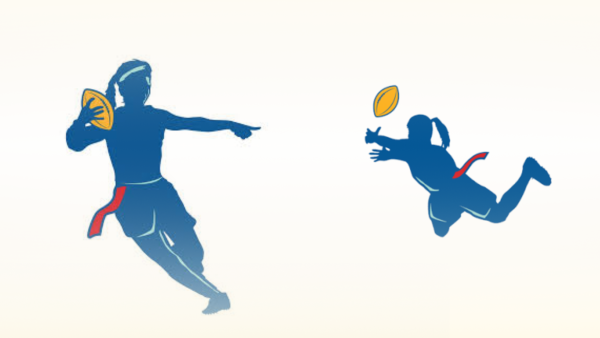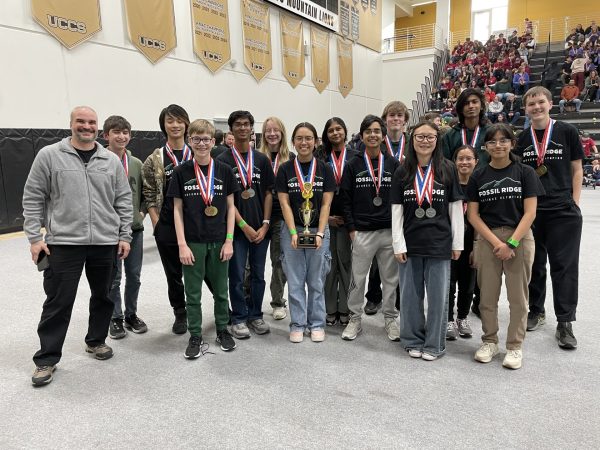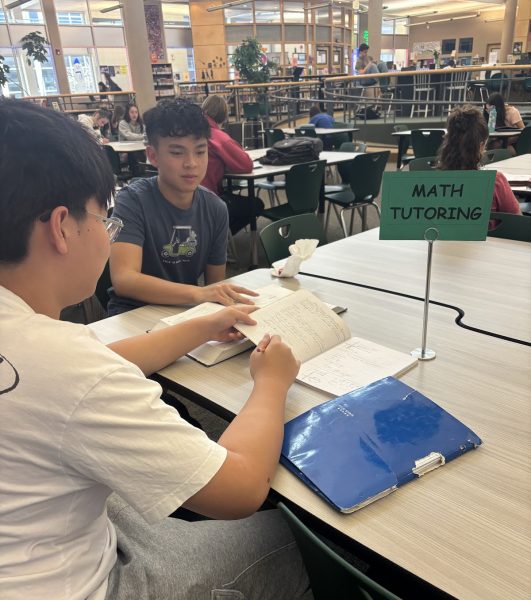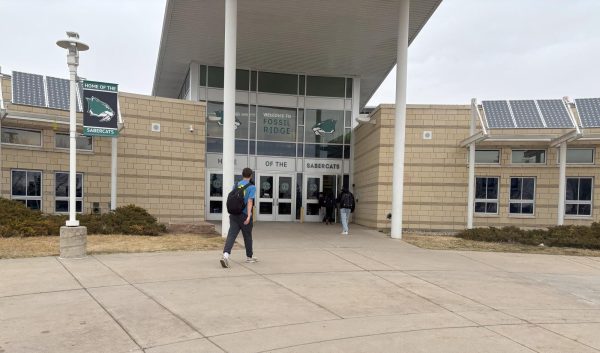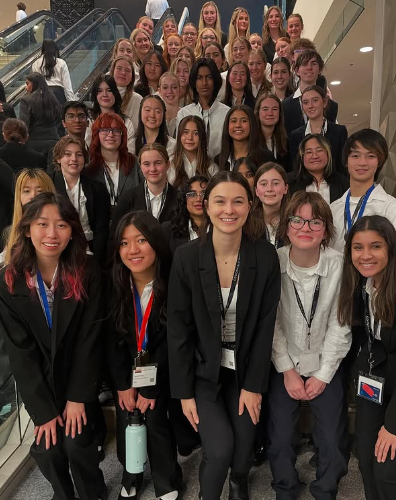Students strive for club hours in active lifestyles

Students feel as if they must fit in multiple extracurriculars, also attempting to find time in their busy schedules for themselves.
Recently I wrote an article about club hours here at Fossil Ridge High School. The ten honor societies offered at Fossil are National Honor Society (NHS), Science National Honor Society (SNHS), Mu Alpha Theta (MATh), National English Honor Society (NEHS), National Art Honor Society (NAHS), National Business Honor Society (NBHS), National Technical Honor Society (NTHS), Rho Kappa (social studies), Tri-M (music), and Computer Science Honor Society (CSHS).
August rolls around and stressed seniors begin filing for college. Scribbling down every club, every activity, every strong suit. As a freshman, students scan the list of clubs, figuring out which sounds best on their college application.
Completely disregarding the entire purpose of clubs, to join a society that sparks interest.
Sofia Carmosino, a senior and president of NHS, says, “I feel like it’s more meaningful for you to volunteer and put your service into something that matters for you.”
Despite wanting students to participate in clubs on their own, hours often have to be prioritized in order to gain interest.
Carmosino strives to provide exciting hours as president, “I think that everything we try and put on is like something that is not so much like boring volunteer work but something that is fulfilling,” she says.
Most honor societies require eight inside hours and ten outside. Members can obtain inside hours by participating in activities thrown by the club and outside through school-sponsored activities and volunteering in their own time.
Yet students end the year in bad standing, failing to gain enough hours, especially those attempting to obtain enough hours in multiple societies.
Nicholas Goertzen, senior, is a member of five of the ten honor societies: NHS, SNHS, CSHS, MATh, and NTHS. He attempts to gain enough hours for the clubs he is a member of, but this has often been seen as difficult especially when participating in multiple.
Goertzen says, “I regret taking a couple of [clubs] but like, I feel like most of them are worth taking.”
Tutoring is the largest way for members to gain hours, which fill up almost immediately. Students are told only to sign up twice a quarter to avoid taking away opportunities from other students.
“[Clubs should] give out opportunities that aren’t just tutoring,” Goertzen explains. Depending on the subject few students show up, giving the volunteers nothing to do and no real experience.
Clubs such as SNHS frequently communicate with students to offer more opportunities that are interesting and will reach the correct crowd. This past year they continue to bring in guest speakers to provide an interesting opportunity for students to gain hours and expand their knowledge.

Jennifer Bekken, the teacher for SNHS says how they strive to grow in providing hour possibilities. “We always want to grow. For example, this year, we’re bringing in guest speakers four times a year,” she explains.
Now this falls to the students to achieve, “You’re honor students, we trust you to be honorable,” Bekken says.
Although these are high-achieving students that join honors societies, they still fail to gain all hours. The main idea behind this, procrastination.
The teacher for MATh, Todd Pfeifer can see how some students are falling behind, Pfeifer says, “And I do think, yeah, students are having a difficult time getting all their hours for the year.”
Students are at school six hours a day minimum, not including the extra time spent on homework, sports, and work. Clubs are in the back of their mind.
“I think a lot of people kind of put it off, put it off, put it off and I get it, kids are busy,” Pfeifer says.
One forward initiative comes from the club NEHS which has a monthly meeting and attempts to provide at least three hours per month. One writing at-home activity, a monthly book club during lunch, and an outside-of-school opportunity, the most recent being a book speed dating.
The goal of a club is always to cure interest in a subject and this continues as the board provides hours. Catherine Duncan, a senior at Fossil and president of NEHS explains, “It’s like, if you see a pathway in English, I think you want to show up to those events.”
NEHS is now attempting to provide four hours for their March meeting, repeating their industrious actions when they also offered four hours at their February meeting.
Duncan attempts to host inclusive activities, she says, “We try to make it interesting, it’s not just come read this book. It’s like come share your favorite book or [listen to a] guest speaker who talks about their chances or their opportunity in writing.”
NEHS’s in-person activities that fall outside of school hours range in attendance, usually around ten. At-home writing continues to be their most popular activity and guest speakers generally gain medium to high attendance rates.
As of now, Duncan continues to encourage students to participate in clubs if possible, “I think if you’re able to get involved it’s always a great thing,” she explains.
Your donation will support the student journalists of Fossil Ridge High School. Your contribution will allow us to purchase equipment and cover our annual website hosting costs.

Sophie Webb (Co-Editor in Chief) a journalism enthusiast is completing her final year at Fossil Ridge High School and Etched in Stone, however, her writing career doesn't end here, Webb is planning to further study journalism in college. Etched in Stone has allowed Webb to find a new passion; photography,...




